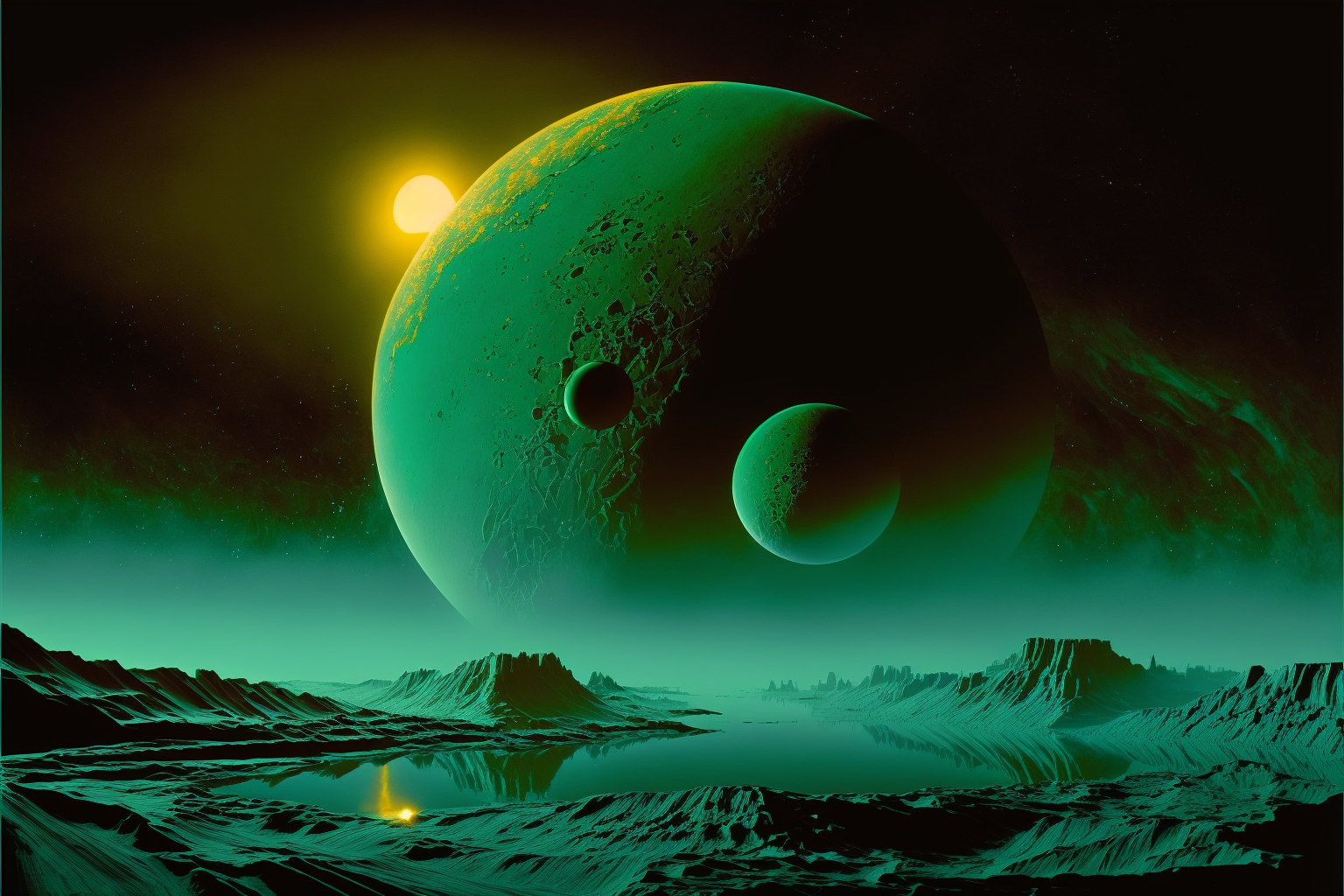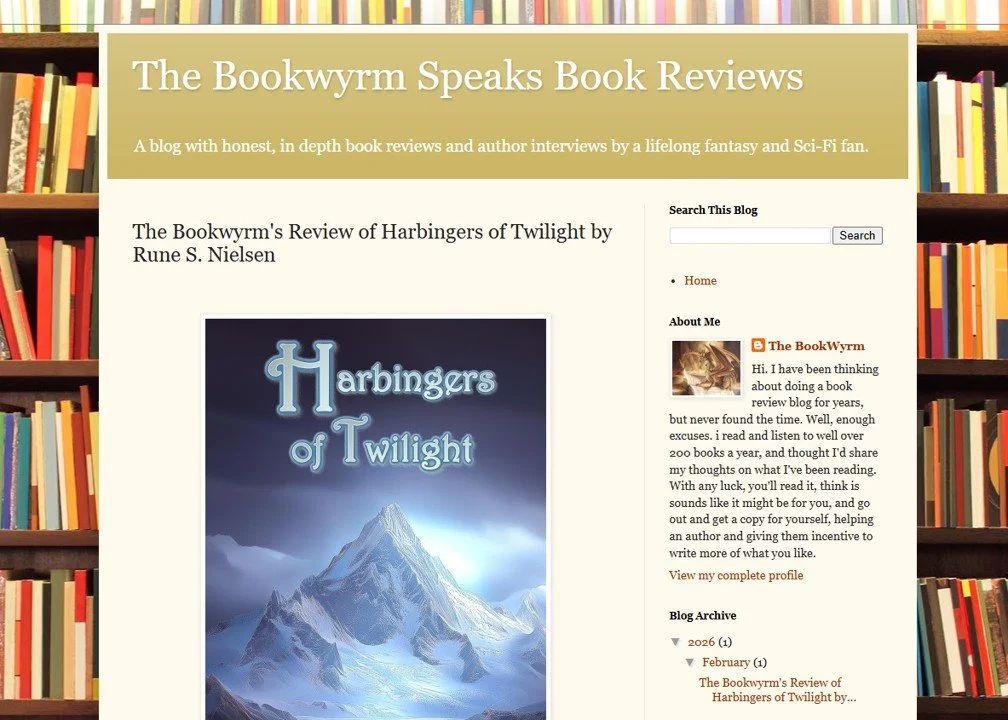How to publish your novel (step-by-step instructions)
Easy-to-follow instructions on turning your book into a professionally published novel on Amazon.
Top Tips For Authors
I asked over sixty authors for their best advice, compiled it, and made it available for everyone.
MORE THAN 100 AUTHOR INTERVIEWS
Rune S. Nielsen likes to interview his fellow authors. I’ve interviewed bestselling authors, award-winners…some that sell millions of books. I’ve also interviewed fresh new writers.
What are the similarities? What dreams do they have?
Read interviews with Mark Lawrence, multiple award winning author L. James Rice, SPBFO winner Olivia Atwater, and a ton of great fantasy authors like Andrew D. Meredith, Kristin Gleeson, and W.D. Kilpack III.
Update your eBook
for free
You found an annoying typo in your book. You updated your eBook file on Amazon. How do readers who previously purchased your novel get the updated version?
Beta-reader questionnaire
You might think what you wrote is great. But is it? Which bits should you definitely keep, and which should you cut? A beta reader (or critique partner, if you like) can help you figure that out. Help find stuff that irritates readers and thereby improve the quality.
Here’s one of the beta-reader questionnaires that I used for my first novel.
I spent around three hours interviewing each beta-reader and got a lot of valuable inspiration and insights from each.
Be aware
a: The questionnaire is in Danish. If you are a new author you might find it useful (there’s always Google translate.)
b: It will be hurtful to get comments on your work, even if someone tries to say stuff to help you. But it’s worth it as beta-readers help you locate issues with your writing.
Advice for aspiring authors
Q: What is most important for a new author?
Rune S. Nielsen: 1) Write and keep on writing.
2) Fear is the mind-killer. Don't fear missing your shots. Just keep “throwing the ball until you score.”
3) Publish your works yourself or get someone to publish them. You want people to read your stuff. And yes, always...
4) Write and keep on writing.
Q: Any specific advice for fantasy authors?
Rune S. Nielsen: If you do initial worldbuilding, you end up saving time because you don’t have to go back and change all those pesky details later.
Think deeply about your world. Write stuff down. Spend a few months worldbuilding before you write a lot of chapters (unless you are a discovery writer, then, by all means, go ahead—write!)
I suggest that you begin your worldbuilding from high up. Pick something overall and decide on that. Like, are the physical laws the same as in our world? What kind of planet type are the characters living on? Think about interacting societies, economy and trade, religion, magic system, and everything else that defines the place where your story unfolds. Especially the things that are different from our world.
Work your way gradually down to the smallest details. Like, what kind of insects (if any) are there? Do they eat breakfast?
Take a deep dive into some of it, and what it means for your characters. Let’s say you want gravity to be half of what we are used to on earth. Then how will this affect combat? Do they jump around like in a martial arts movie? Swordfights in midair and that kind of thing. How will low gravity affect the architecture? Low gravity probably pulls their bodies less close to the ground than ours. Are they tall and lean perhaps? Spindly thin? Can they fly? Do they have wings? Do they breathe air? Is the atmosphere a different mix? How do they communicate if there is a lot of helium in the “air”? Is it flammable? How does this affect their magic and architecture? The more you define the more unique the world will feel, but also remember that you don’t have time to go on and on. Do it enough. Then go write.
Q: Any advice on characters?
Rune S. Nielsen: Your characters should be nuanced and make intelligent choices because we all do things for a reason. People act based on what they see as the right choices, and even if you (as a reader or a writer) see a choice as dumb, the person making that choice will likely think it is the best thing to do at the time.
Figure out who your characters are, and why they act the way they do. Understand them. Too often I encounter characters in books who supposedly are clever (the author says so) but who have a habit of doing unintelligent things, and afterward never reflect on their behavior (that was a mistake,) make excuses for themselves (I know eating so much was wrong, but I’m feeling sorry for myself, so it’s all right,) or try to change (never again!)
This isn't very pleasant. It is all right that people do stupid things (we all do once in a while) but we also become sad about the outcome or even try to change. Don’t characterize any character as something they are not. The reader will see right through it.
If you want stupid characters…fine. They can work, but readers want you to be honest. Don’t write, “She was a brilliant doctor.” Show it through her actions or in dialogue. If you tell me a character is a certain way and then disprove it by the actions, it is annoying.
Answer these questions about each of your characters: what does the character want most in life at the beginning of the story, what kind of education does the character have, what kind of job, important relationships - family/friends/job/school, quirks, drives, looks, age, clothing, sex, likes/dislikes, faith. This makes it so much easier to decide how the character will react in any given situation throughout your story, and for you to figure out how the story might change the character, in a way that creates an interesting character arc (hopefully something the reader will want to read and engage emotionally in.)
Figuring out what motivates a character tells you how they might (or might not) work together. Are they opposed in certain ways? Group dynamics and lancer arcs (lancers are sidekicks, like Robin to Batman) can drive the story.
Q: What about magic systems?
Rune S. Nielsen: As a reader, I like it when I think I understand how magic works. When it seems to be “real.” A well-thought-through magic system is, convincing and offers me an engaging and entertaining read. That said I like a bit of mystery too. Don’t reveal everything and keep me coming back to discover more.
I’m a fan of hard magic systems based on a set of natural (or unnatural) laws. You as an author need to figure out this system before you create all the magic (like spells or rituals.) Make it coherent throughout.
If you use a soft magic system, my advice would be not to focus on how magic works (as it will make little sense.) Create some cool-sounding spells and magic (think Harry Potter.) Don’t try to explain much about it. We will see through it. Spend your time writing great prose, upping the suspense, and adding nuance to the characters.
You could have several magic systems in the same novel. It might provide some mystery (I used Miller, in The Doomsayer Prince, to this effect.)
Never write page after page about the magic. Info-dumping is not fun for the readers. It is GREAT that you, the author, know, but don’t bore the reader with every tiny detail. Sneak the information into a dialogue or the action instead (where relevant.)
Q: What about the length of a novel. The Doomsayer is rather long
Rune S. Nielsen: There are at least two good approaches for deciding the length of your novel: Write what you love or think will earn you the most.
Initially, I tried to combine the two, but my novel soon grew rather large, and I decided to pick what I love: a lengthy epic fantasy.
According to science, fantasy novels that are around 90.000-110.000 words should earn the most (Doomsayer Prince is 291.140 including a glossary and everything else; as long as two of the three LotR books combined.)
I asked my editor and test readers if they thought I should split Doomsayer Prince into two novels, to optimize my earnings, but we all thought it would not work well. Not unless I did a total rewrite.
I could have written a different much shorter fantasy novel. I could have chosen a genre that was doing well, like Scandinavian Crime fiction…but if I had to do it again, I’d still do the same.
Read more of the interview with Rune S. Nielsen here and here
Reviews and articles about writing
MOST RECENT
Author Interviews
Selected works by
Danish authors
So much talent in Danish fiction. Please support the authors—buy some of these fine books (most are in Danish)


















